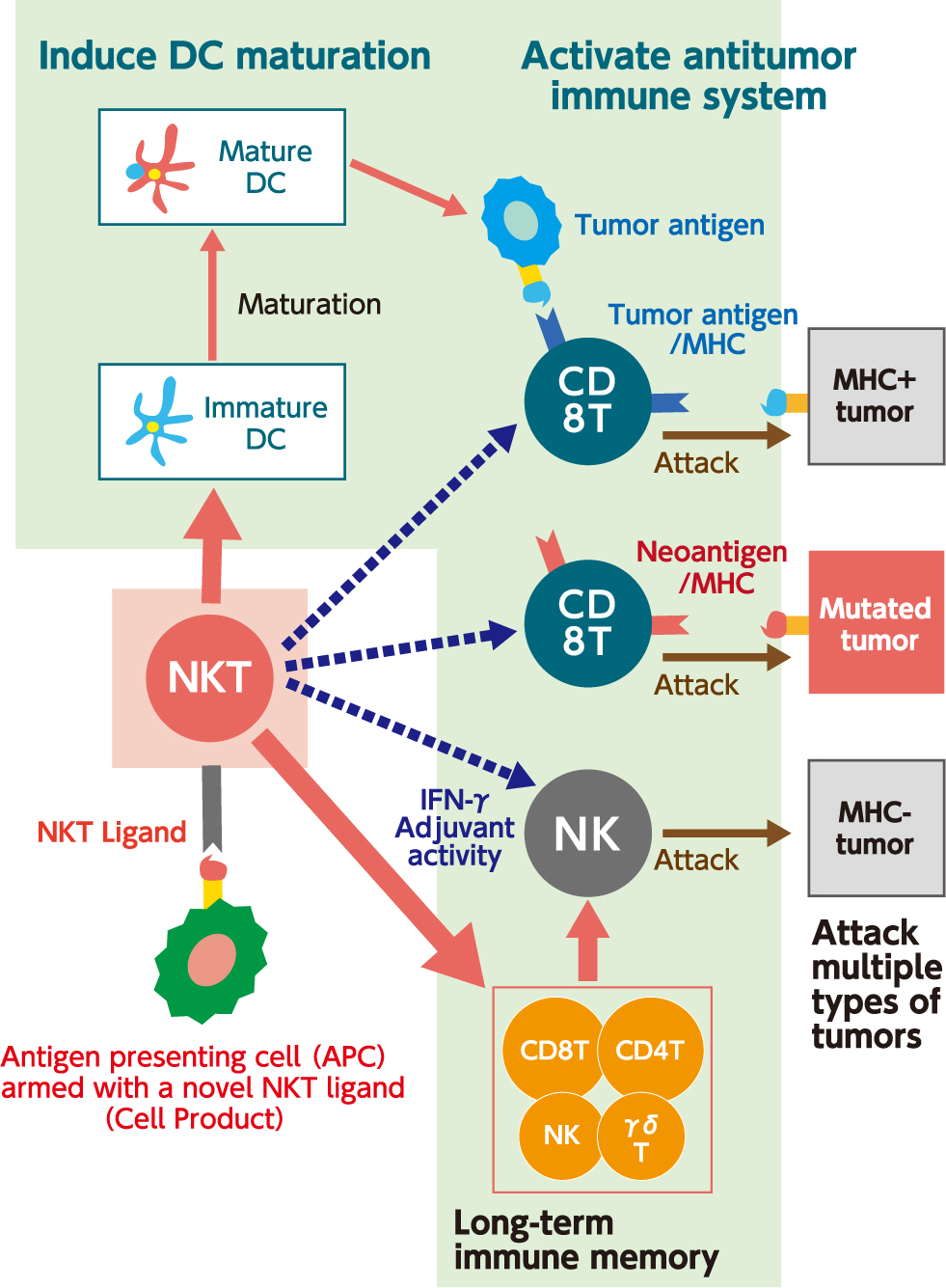NKT cell-targeted cancer immunotherapy
NKT cell-targeted cancer immunotherapy is a treatment method that targets the cancer patient's own NKT cells
with the aim of activating them.
Antigen presenting cells (APCs) are isolated from the patient's own
peripheral blood, after which pulsed culture with NKT ligand is carried out at the Cell Processing Center. The
product, an autologous cell formulation, is administered intravenously to patients as cellular and
tissue-based products. Research on and development of the allogeneic cell products are ongoing which try to
differentiate APCs from induced pluripotent stem cells (iPSs), etc., and then to activate NKT cells by pulsing
them with NKT ligand.
Mechanisms of NKT cell-targeted cancer immunotherapy
When APCs presenting NKT ligands are administered to patients, NKT cells within the patient’s body recognize the ligands, and produce large quantities of cytokines such as interferon-γ (IFN-γ), resulting in activation of other immune cell types:
- The effector cell types, including NK cells which are part of the innate immune system and CD8T cells (killer T-cells) which are part of the acquired immune system, are activated, resulting in anti-tumor immune responses.
- Memory T-cells including central memory and effector memory cells are induced efficiently by NKT cells. Once they are produced, long-term immune memory responses are formed, which results in anti-tumor immune responses.
- Immature dendritic cells are induced to mature ones efficiently by NKT cells, resulting in improving immune-deficient condition in cancer patents.


